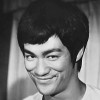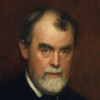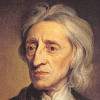“ A body at rest affords us no idea of any active power to move; and when it is set in motion itself, that motion is rather a passion than an action in it. ”
John Locke, An Essay Concerning Human Understanding (1689). copy citation
| Author | John Locke |
|---|---|
| Source | An Essay Concerning Human Understanding |
| Topic | action passion |
| Date | 1689 |
| Language | English |
| Reference | |
| Note | |
| Weblink | http://www.gutenberg.org/files/10615/10615-h/10615-h.htm |
Context
“thinking and motion, let us consider whence we have the clearest ideas of the powers which produce these actions. (1) Of thinking, body affords us no idea at all; it is only from reflection that we have that. (2) Neither have we from body any idea of the beginning of motion. A body at rest affords us no idea of any active power to move; and when it is set in motion itself, that motion is rather a passion than an action in it. For, when the ball obeys the motion of a billiard-stick, it is not any action of the ball, but bare passion. Also when by impulse it sets another ball in motion that lay in its way, it only communicates the motion it had received from another, and loses in itself so much as the other received:”
source



